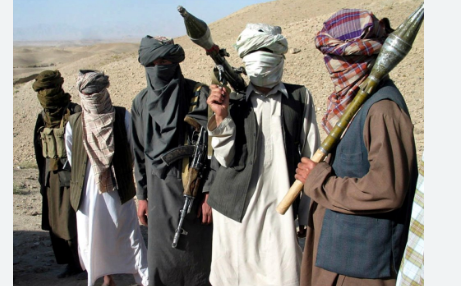New York (Web Desk): The Tehreek-e-Taliban Pakistan (TTP), a group designated as a terrorist organization by the United Nations, has significantly intensified its attacks, particularly on Pakistani security forces and civilians.
According to a new UN report, the TTP has received crucial logistical and operational support from the Taliban authorities in Afghanistan, allowing them to launch cross-border assaults with increased frequency.
The report details that the scale of these attacks has grown drastically, with over six hundred incidents recorded in the reporting period, many originating from Afghan territory.
In its expansion, the TTP has set up new training camps in Afghanistan's eastern provinces, such as Kunar, Nangarhar, and Khost, and has also been bolstering its recruitment efforts, drawing in members from both the Afghan Taliban and its own ranks.
Additionally, the report pointed out a rising alliance between the TTP, the Afghan Taliban, and al-Qaeda, suggesting that the cooperation between these groups could lead to broader destabilization in the region.
The increasing provision of resources, including suicide bombers and fighters, as well as shared ideological support, could potentially elevate the TTP’s influence into a larger regional threat.
The report also noted that with the presence of numerous terrorist factions in Afghanistan, the country continues to serve as a hub for extremist activity, not just destabilizing Afghanistan, but posing a growing threat to neighboring countries as well.
As part of this, the Islamic State-Khorasan (ISIL-K) group, which had previously targeted Pakistan, suffered significant setbacks after Pakistani forces disrupted its plans to expand within the country.
Despite this, ISIL-K has adapted by reverting to older communication methods to evade detection, including using couriers for instructions and in-person meetings.
Meanwhile, the Majeed Brigade, a unit of the Baluchistan Liberation Army, has claimed responsibility for multiple deadly attacks, targeting southern Pakistan.
This group is known to have close ties with several other terrorist organizations, including the TTP and ISIL-K, complicating efforts to curb extremist activity in the region.
The report further revealed that ISIL-K, still a formidable force, remains a major threat to the Taliban's authority in Afghanistan, with its activities aimed at destabilizing the Taliban government and targeting ethnic minorities and foreign nationals.
While the Taliban has taken steps to counter ISIL-K’s influence, the group's continued presence in Afghanistan, especially in the northern provinces, has made it a persistent security challenge.
This is compounded by local resentment, with farmers and civilians in areas affected by the Taliban's policies providing shelter to insurgents as a form of retaliation.
On the broader international front, al-Qaeda's influence in Afghanistan persists, with the group working to strengthen ties with other regional terrorist organizations and seeking to expand its operations beyond Afghanistan into Iraq, Syria, and Europe.
The Taliban, despite their efforts to crack down on terrorist activities, have struggled to eliminate the deep-rooted presence of extremist groups within their ranks and throughout the country.
This failure to fully secure Afghanistan’s borders and curb the influence of groups like al-Qaeda has led to growing concerns over the future stability of the region and the potential for these organizations to launch external operations.


